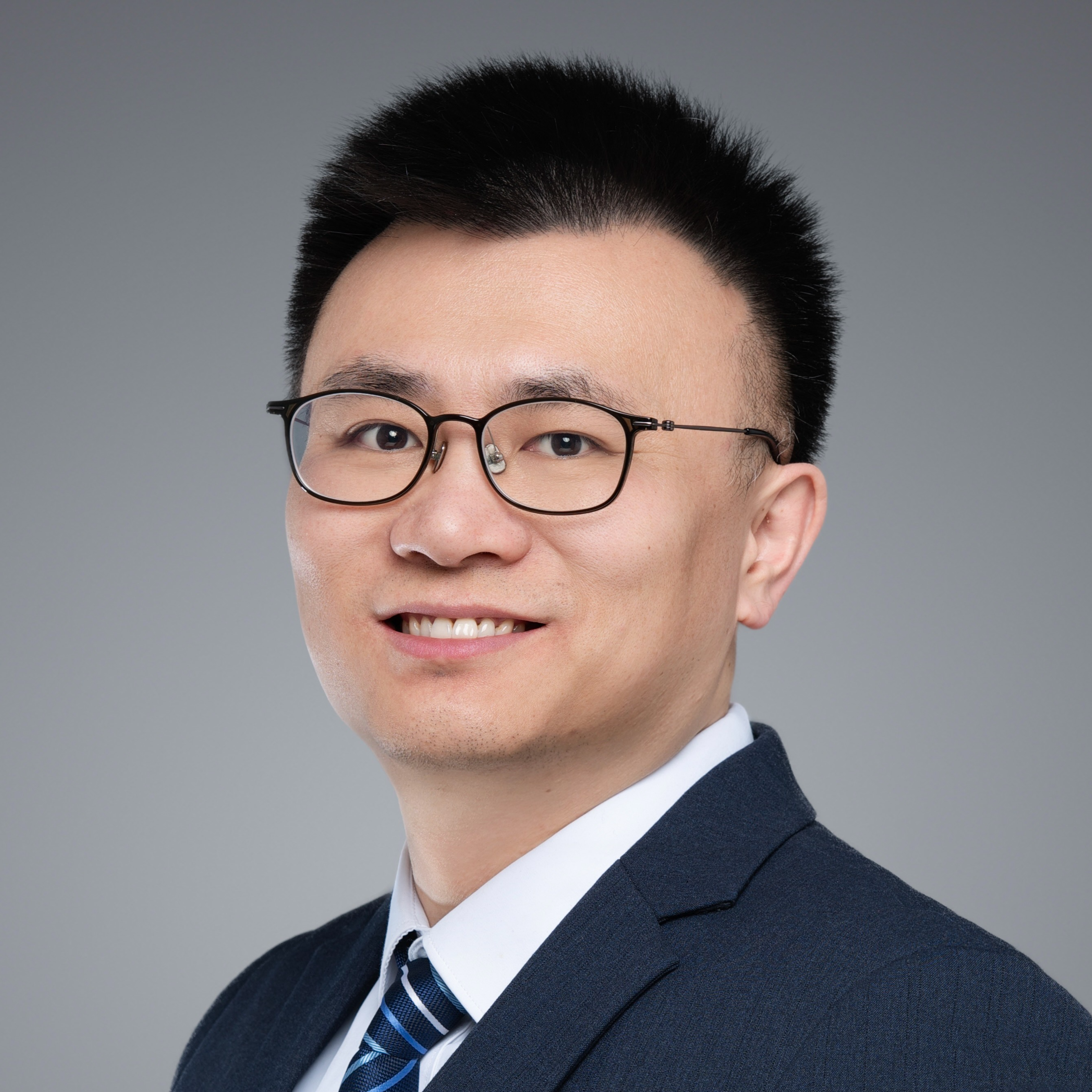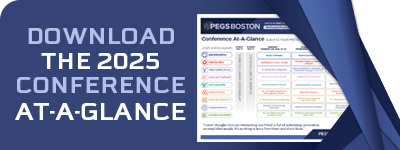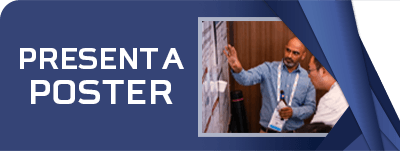Cambridge Healthtech Instituteの第10回年次
Advances in Immunotherapy
免疫療法の進歩
Augmenting the Immune System for Oncology and Autoimmune
腫瘍・自己免疫向け免疫系の増強
2025年5月12日 - 13日 EDT(米国東部標準時・夏時間)
Sunday, May 11
1:00 pmMain Conference Registration
2:00 pmRecommended Pre-Conference Short Course
SC3: Challenges and Opportunities in Solid Tumor and Autoimmune Disease Therapeutic Innovations
*Separate registration required. See short course page for details.
Monday, May 12
7:00 amRegistration and Morning Coffee
T CELL AND IMMUNE CELL ENGAGERS
Unlocking the Full Potential of T Cell Engagers: The ENT1 Inhibitor EOS-984 Can Overcome Adenosine-Mediated Immunosuppression in Solid Tumors
 Yvonne McGrath, PhD, CSO, iTeos Therapeutics SA
Yvonne McGrath, PhD, CSO, iTeos Therapeutics SA
Adenosine is a powerful T cell immunosuppressant, measurable at micromolar concentrations in a range of solid tumors. We have decoded an important but underappreciated mechanism whereby adenosine, taken up by T cells via the Equilabrative Nucleoside Transporter 1 (ENT1), poisons pyrimidine synthesis. EOS-984 is a clinical-stage ENT1 inhibitor with the potential to shield T cell-activating agents from this mechanism, unlocking their full potential in solid tumors.
TCR-Based Bispecific T Cell Engager Development and Clinical Applications
 Zhimei Du, PhD, CSO, BlueSphere Bio
Zhimei Du, PhD, CSO, BlueSphere Bio
TCR-T cell therapy is a promising approach with high specificity and sensitivity to low-abundance antigens, targeting both surface and intracellular proteins. In contrast, mAbs and CAR T cells only target surface antigens. However, challenges in manufacturing, cost, and accessibility exist. To address these, TCR-based bispecific T cell engagers (BiTEs) offer a potential solution. This presentation will outline the challenges and development pathway for TCR-based BiTEs in cancer treatment.
Making NK Cells Antigen-Specific Using Trispecific Killer Engagers (TriKEs) to Treat Cancer
 Jeffrey Miller, MD, Deputy Director, Masonic Cancer Center; Professor of Medicine, Division of Hematology, Oncology and Transplantation, University of Minnesota
Jeffrey Miller, MD, Deputy Director, Masonic Cancer Center; Professor of Medicine, Division of Hematology, Oncology and Transplantation, University of Minnesota
Haploidentical NK cells can induce remissions in patients with refractory leukemia. However, they lack specificity. To make NK cells antigen-specific, we developed Trispecific Killer Engagers (TriKEs) that engage NK cells (camelid anti-CD16) and tumor-antigens with IL-15 between them. The goal of this therapy is to create immune synapses in vivo to target and activate endogenous NK cells to optimally treat leukemia (anti-CD33) and solid tumors (B7H3).
10:30 amNetworking Coffee Break
OVERCOMING THE LIMITS OF IMMUNOTHERAPY
Creating and Targeting Synthetic Neoantigens
 Christoph Rader, PhD, CTO, Aethon Therapeutics
Christoph Rader, PhD, CTO, Aethon Therapeutics
Targeted therapy with covalent inhibitors of oncoproteins are initially effective but lack durability due to cancer cell resistance. MHC-I presentation of the covalently modified oncoprotein peptides on the cell surface creates synthetic neoantigens that can be targeted by antibodies with high specificity and affinity. As T cell engagers, these HapImmune antibodies afford a unique combination of targeted and immune therapy. Preclinical proof-of-concept studies based on oncoprotein KRASG12C will be presented.
The Limits of Immunotherapy
 Alan J. Korman, PhD, Senior Vice President, Human Immunology, Vir Biotechnology
Alan J. Korman, PhD, Senior Vice President, Human Immunology, Vir Biotechnology
Immune checkpoint blockade (ICB) and particularly the combination of multiple checkpoint inhibitors, while responsible for improved rates of survival in multiple malignancies, has suffered from recent clinical trial failures. The rationale behind combining multiple ICB molecules as well as the importance of Fc/FcgR interactions for antibody therapeutics will be described. The development of next-generation checkpoint inhibitors will be addressed.
12:00 pmSession Break
1:10 pmSession Break
TARGETING THE TUMOR MICROENVIRONMENT
Targeting the Microenvironment of Solid Tumors with CD4+ T Cells
 Joshua R Veatch, MD, PhD, Assistant Professor, Translational Science and Therapeutics, Fred Hutchinson Cancer Center
Joshua R Veatch, MD, PhD, Assistant Professor, Translational Science and Therapeutics, Fred Hutchinson Cancer Center
Tumor-specific CD4 T cells correlate with better clinical outcomes and activation of myeloid and CD8 T cells across human cancers. Mouse models show that CD4 T cell therapy can control tumors through stimulation of CD8 T cells, and through CD8 T cell independent innate immune mechanisms. I will discuss methods to target CD4 T cells to solid tumors, and methods to understand and augment antitumor mechanisms.
Antigen Assimilating Multispecific Antibodies for Immunotherapy
 Jason Price, PhD, Acting Asstant Professor & Principal Investigator, Ben Towne Centre, Seattle Childrens Research Institute
Jason Price, PhD, Acting Asstant Professor & Principal Investigator, Ben Towne Centre, Seattle Childrens Research Institute
Tumor-target heterogeneity presents a major obstacle for immunotherapies, often resulting in incomplete tumor elimination and treatment resistance. This talk will present our work advancing a novel class of T cell-redirecting multispecific antibodies that addresses this problem. Our single-molecule approach converts target-negative cells into target-positive cells by transforming endogenous tumor self-defense mechanisms into targetable vulnerabilities.
IOMX-0675: A Cross-Specific Antibody Selectively Inhibiting LILRB1 and LILRB2, Repolarizes Immunosuppressive Myeloid Cells and Activates T Cells
 Christine Rothe, PhD, Chief Development Officer, iOmx Therapeutics AG
Christine Rothe, PhD, Chief Development Officer, iOmx Therapeutics AG
IOMX-0675 is a fully human, cross-specific antibody identified from iOmx's proprietary phage display library, selectively antagonizing with high affinity the two immunosuppressive receptors LILRB1 and LILRB2, while binding only weakly to the closely related immune-activating family members LILRA1 and LILRA3. Its highly differentiated binding profile drives potent reprogramming of the immunosuppressive myeloid compartment and restoration of cytotoxic lymphoid cell activity in the tumor microenvironment. Highly promising preclinical data strongly support a best-in-class approach for IOMX-0675 in an evolving novel target space for cancer immunotherapy.
 Unlocking the Power of Agonist Antibodies: A Strategic Analytical Development Approach for Immunotherapy & Autoimmunity
Unlocking the Power of Agonist Antibodies: A Strategic Analytical Development Approach for Immunotherapy & Autoimmunity
 Alpana Prasad, Director of Product Management, Eurofins DiscoverX
Alpana Prasad, Director of Product Management, Eurofins DiscoverX
Agonist antibodies targeting TNF Receptor Superfamily (e.g. OX40) have been in development for immunotherapy and autoimmunity. There is an increasing focus on developing antibodies to activate co-inhibitory checkpoint receptors (e.g. PD-1). This presentation will showcase case studies that demonstrate the critical role of cell-based assays in assessing agonist activity and FcγR-mediated clustering, as a streamlined strategy for advancing the clinical development of agonist antibody therapies.
3:20 pmNetworking Refreshment Break
4:05 pmTransition to Plenary Keynote Session
PLENARY KEYNOTE SESSION
The Role of Protein Engineering in Developing New Innovative Modalities
 Puja Sapra, PhD, Senior Vice President, Head R&D Biologics, Engineering and Oncology Targeted Discovery, AstraZeneca
Puja Sapra, PhD, Senior Vice President, Head R&D Biologics, Engineering and Oncology Targeted Discovery, AstraZeneca
Advances in protein engineering technologies have revolutionized biologics design, paving the way for new innovative drug modalities. This talk will highlight key advancements in the field of protein engineering that have enabled these new modalities to enter the clinic and provide benefit to patients. The talk will also explore the impact of machine learning-enabled deep screening technology on hit identification, lead optimization and development of antibody-based therapies.
YOUNG SCIENTIST KEYNOTE
Antibody-Lectin Chimeras for Glyco-Immune Checkpoint Blockade
 Jessica C. Stark, PhD, Underwood-Prescott Career Development Professor, MIT
Jessica C. Stark, PhD, Underwood-Prescott Career Development Professor, MIT
Despite the curative potential of cancer immunotherapy, most patients do not benefit from treatment. Glyco-immune checkpoints-interactions of cancer glycans with inhibitory glycan-binding receptors called lectins-have emerged as prominent mechanisms of resistance to existing immunotherapies. I will describe development of antibody-lectin chimeras: a biologic framework for glyco-immune checkpoint blockade that is now moving toward the clinic.
5:55 pmWelcome Reception in the Exhibit Hall with Poster Viewing
-jpg_763e004d-1a72-4a71-8e72-41737f8bc448.jpg)
7:20 pmClose of Day
Tuesday, May 13
7:30 amRegistration and Morning Coffee
MENTORING MEET-UP
Creating and Fostering a Productive and Effective Mentor-Mentee Relationship
This meet-up is designed for senior scientists that are interested in becoming a mentor for junior scientists: IN-PERSON ONLY
- What it takes to be a mentor
- Finding the right match
- Goal of Mentoring is to provide support for professional career development and informal coaching
- The Mentor:Mentee relationship: you get out of it what you put into it.
- Establishing boundaries and clear action items to make the most of the experience.
IMMUNOTHERAPIES FOR AUTOIMMUNE DISORDERS
Bispecific Antibodies and CAR-T approaches - Turning from Oncology to Autoimmune Disorders
 William Strohl, PhD, President & Owner, BiStro Biotech Consulting LLC
William Strohl, PhD, President & Owner, BiStro Biotech Consulting LLC
In 2021, seminal experiments demonstrated that autologous CD19-CAR-T cells, targeting antibody-producing B-cells, could be generated and used to treat patients with severe lupus. Over the past four years, it has become apparent that several CAR-T and T-cell engaging (TCE) bispecific antibody approaches, using constructs previously relegated primarily for treatment of cancer, may be used to deplete B cells producing pathogenic autoantibodies in autoimmune diseases. While these therapeutic approaches can come with potential adverse effects such as cytokine release syndrome (CRS) and sometimes neurological sequelae, they are offering hope as new treatment approaches for a wide variety of severe autoantibody-directed autoimmune diseases. The various CAR-T and TCE bispecific antibody approaches being developed today for autoimmune diseases will be described and compared.
Stable Inhibition of TL1A Signaling through DR3 Blockade
 Taylor H. Schreiber, MD, PhD, CEO, Shattuck Labs
Taylor H. Schreiber, MD, PhD, CEO, Shattuck Labs
TL1A-blocking antibodies have demonstrated promising clinical remission rates for patients with inflammatory bowel disease. TL1A promotes inflammation through binding to a single receptor, DR3. Preclinical studies demonstrated a dominant role for DR3 in suppressing inflammation relative to TL1A. The preclinical development, safety, PK, and PD of a DR3 blocking antibody, SL-325, now entering Phase 1 clinical development, will be presented.
Combination Immunotherapy with a PD-1+aLAG-3 Therapy
 William Redmond, PhD, Member and Director, Immune Monitoring Laboratory, Earle A. Chiles Research Institute, Providence Cancer Institute
William Redmond, PhD, Member and Director, Immune Monitoring Laboratory, Earle A. Chiles Research Institute, Providence Cancer Institute
LAG-3 correlates with aPD-1 resistance but LAG-3hi tumor-bearing mice, resistant to aPD-1, responded to aPD-1+aLAG-3 therapy. The efficacy of combination aPD-1+aLAG-3 immunotherapy in mice and a cohort of patients with metastatic melanoma was associated with Treg destabilization. These data indicate that combination aPD-1+aLAG-3 immunotherapy drives Treg phenotypic plasticity, which represents a novel biomarker of response and a putative therapeutic target to improve outcomes.
10:35 amCoffee Break in the Exhibit Hall with Poster Viewing

ENGINEERING IMMUNOCYTOKINES
Trifunctional Immunocytokines for Cancer Therapy
 Dafne Müller, PhD, Group Leader, Institute of Cell Biology and Immunology, University of Stuttgart
Dafne Müller, PhD, Group Leader, Institute of Cell Biology and Immunology, University of Stuttgart
We develop trifunctional antibody-fusion proteins composed of a tumor-directed antibody moiety and two different immunomodulatory molecules-common gamma chain receptor cytokines & costimulatory ligands of the TNF-superfamily. Aiming for improved localization and efficacy at the tumor site, the design focuses on targeted presentation and combined mode of action.
Gut Bacteria Engineered to Surface Display Cytokines for TME Modulation
 Rizwan Romee, PhD, Associate Professor Medicine, Harvard Medical School and Dana-Farber Cancer Institute
Rizwan Romee, PhD, Associate Professor Medicine, Harvard Medical School and Dana-Farber Cancer Institute
We have successfully engineered non-pathogenic gut bacteria to surface-display various cytokines, including IL15, IL18, and IL21. The bacteria displaying decoy-resistant IL-18 demonstrated safety and potent efficacy in murine colorectal cancer and melanoma mouse models alone and synergistically with checkpoint blockade, curing a significant proportion of mice. Further, treatment with the bacteria also boosted the migration and efficacy of human CAR NK cells in NSG mice bearing mesothelioma.
12:15 pmSponsored Presentation (Opportunity Available)
12:45 pmSession Break
 LUNCHEON PRESENTATION: How Specific are Antibody Drugs? Revealing insights from a new generation of specificity assays
LUNCHEON PRESENTATION: How Specific are Antibody Drugs? Revealing insights from a new generation of specificity assays
 Rachel Fong, Director of Sales & Alliances, Integral Molecular
Rachel Fong, Director of Sales & Alliances, Integral Molecular
Off-target binding is a significant hurdle in the development of antibody-based therapies, contributing to both drug attrition and adverse events in patients. Recent analysis from our own work identified a surprisingly high off-target rate across the industry, with up to one third of antibody drugs displaying off-target binding. In this presentation, we will discuss the emergence of cell-based protein arrays, including the Membrane Proteome Array, as an alternative and improved technology to assess antibody specificity.
 LUNCHEON PRESENTATION: Costimulatory Tri-Specific T Cell Engager: Next-Generation TCE Platform for Enhanced Efficacy, Persistence, and Safety
LUNCHEON PRESENTATION: Costimulatory Tri-Specific T Cell Engager: Next-Generation TCE Platform for Enhanced Efficacy, Persistence, and Safety
 Jianqing Xu, Sr Director & Head of Lead Optimization, Protein Design & Engineering Excellence Ctr, WuXi Biologics
Jianqing Xu, Sr Director & Head of Lead Optimization, Protein Design & Engineering Excellence Ctr, WuXi Biologics
Tri-specific TCEs (TriTCEs) incorporating CD28/4-1BB co-stimulation enhance T cell activation and persistence in solid tumors, overcoming limitations of bispecific TCEs. We developed a novel TriTCE platform using structural/affinity optimization to balance CD3/co-stimulatory signals, achieving tumor-selective activation. This platform demonstrated improved T cell killing potency and minimal off-target effects, supporting clinical translation as a next-generation TCE therapy.
1:50 pmClose of Advances in Immunotherapy Conference
6:30 pmRecommended Dinner Short Course
SC6: Developability of Bispecific Antibodies
*Separate registration required. See short course page for details.
* 不測の事態により、事前の予告なしにプログラムが変更される場合があります。
アジェンダ・講演者・スポンサー更新
2025年 プログラム
表示する:

工学ストリーム

腫瘍ストリーム

多重特異性ストリーム

免疫療法ストリーム

発現ストリーム

分析法ストリーム

免疫原性ストリーム

新興治療ストリーム

機械学習ストリーム

 Talk Title to be Announced
Talk Title to be Announced Talk Title to be Announced
Talk Title to be Announced Talk Title to be Announced
Talk Title to be Announced




 Talk Title to be Announced
Talk Title to be Announced












